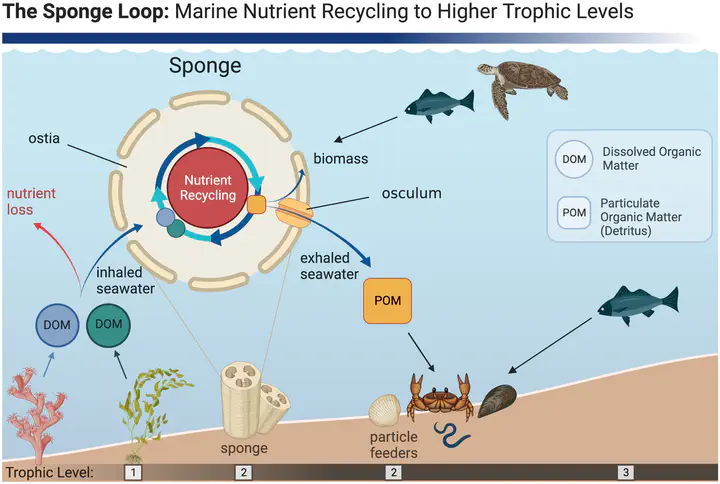The Sponge Loop
Marine nutrient recycling to higher trophic levels

The Sponge Loop
Sponges (Porifera) in particular, are able to significantly affect seawater biogeochemistry via the so-called ‘Sponge Loop’. In this process, dissolved organic matter (DOM) is recycled within the sponge, and made available to the surrounding organisms as particulate organic matter (POM), thus fertilizing local communities (Figure 4.1). Considering that DOM molecules are not profitable to most marine organisms, such recycling process allows DOM to re-enter in higher trophic levels, avoiding energy losses to the open ocean. Therefore, the study of filter feeders’ activity is essential and timely to estimate the status of our oceans, and to understand how these systems function.
Literature
- De Goeij, J.M., van Oevelen, D., Vermeij, M.J.A.A., Osinga, R., Middelburg, J.J., de Goeij, A.F.P.M., Admiraal, W., 2013. Surviving in a Marine Desert: The Sponge Loop Retains Resources Within Coral Reefs. Science 342, 108–110. https://doi.org/10.1126/science.1241981